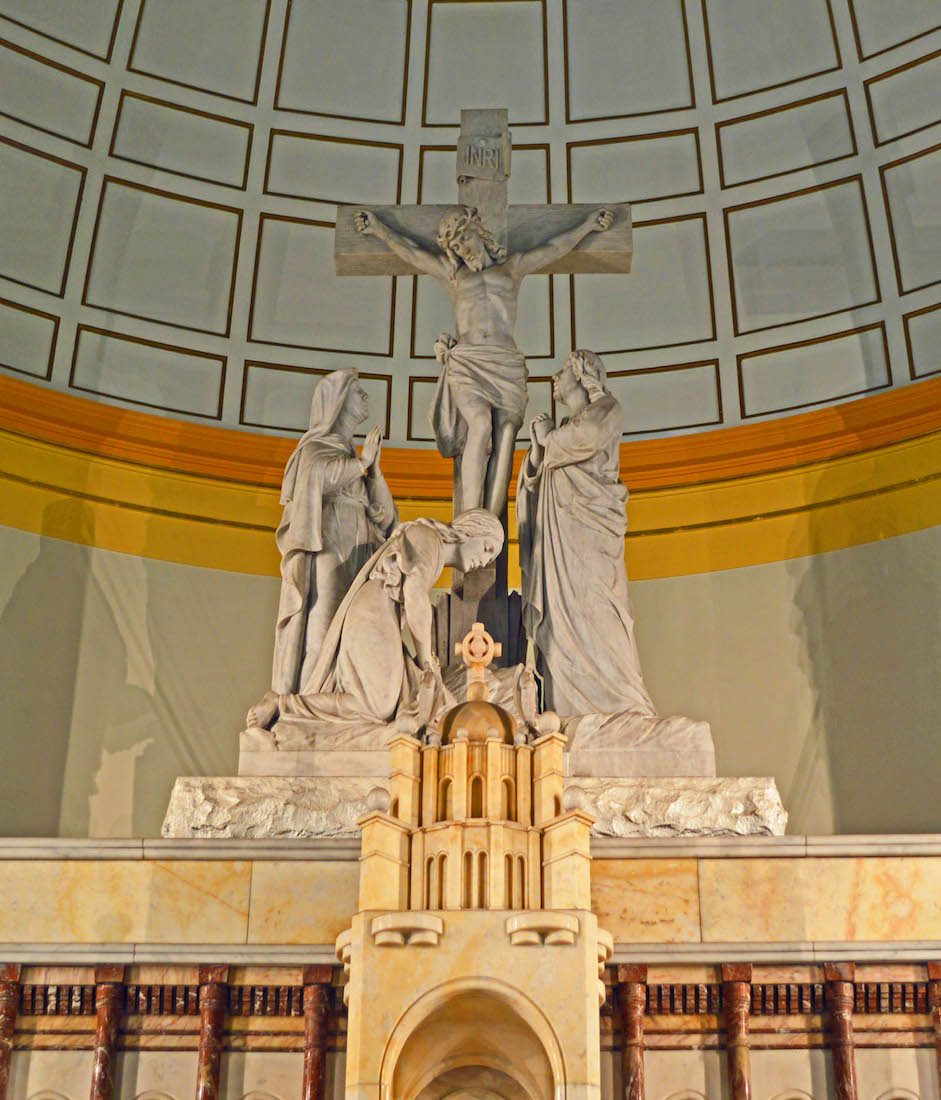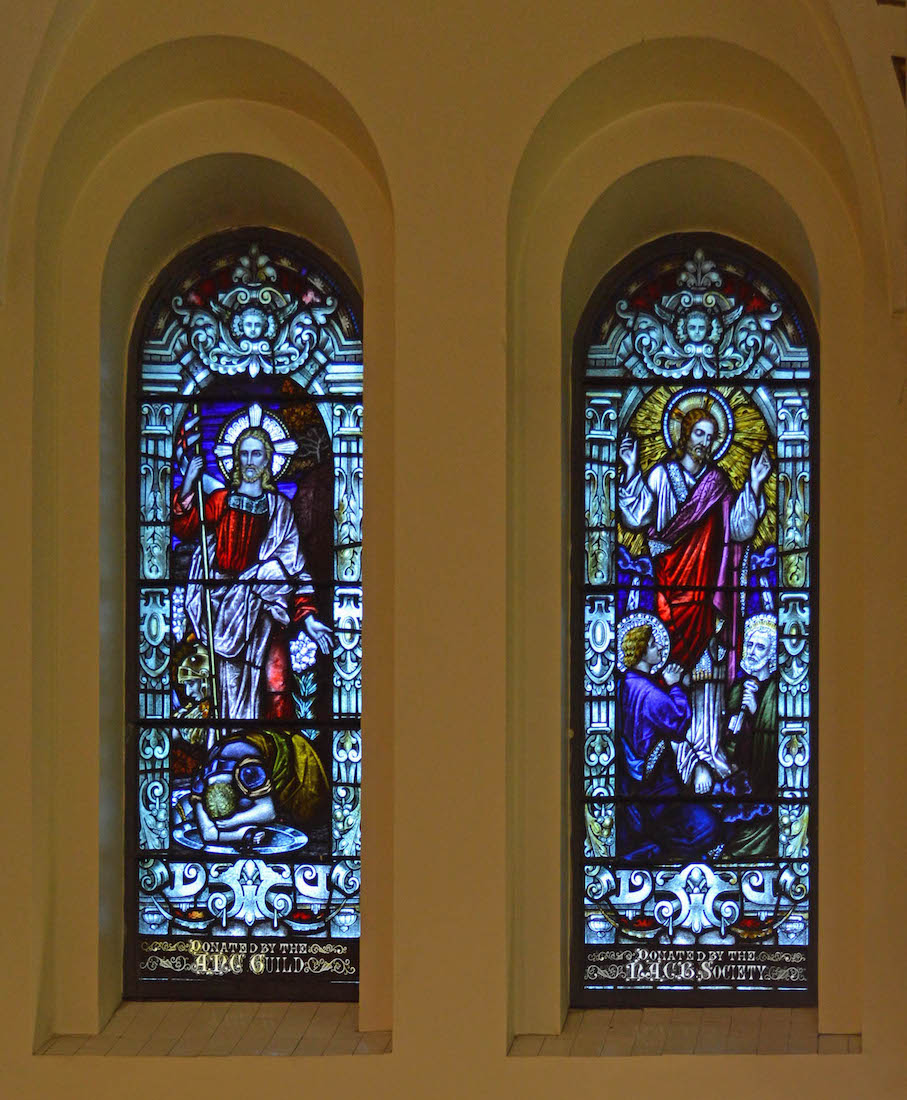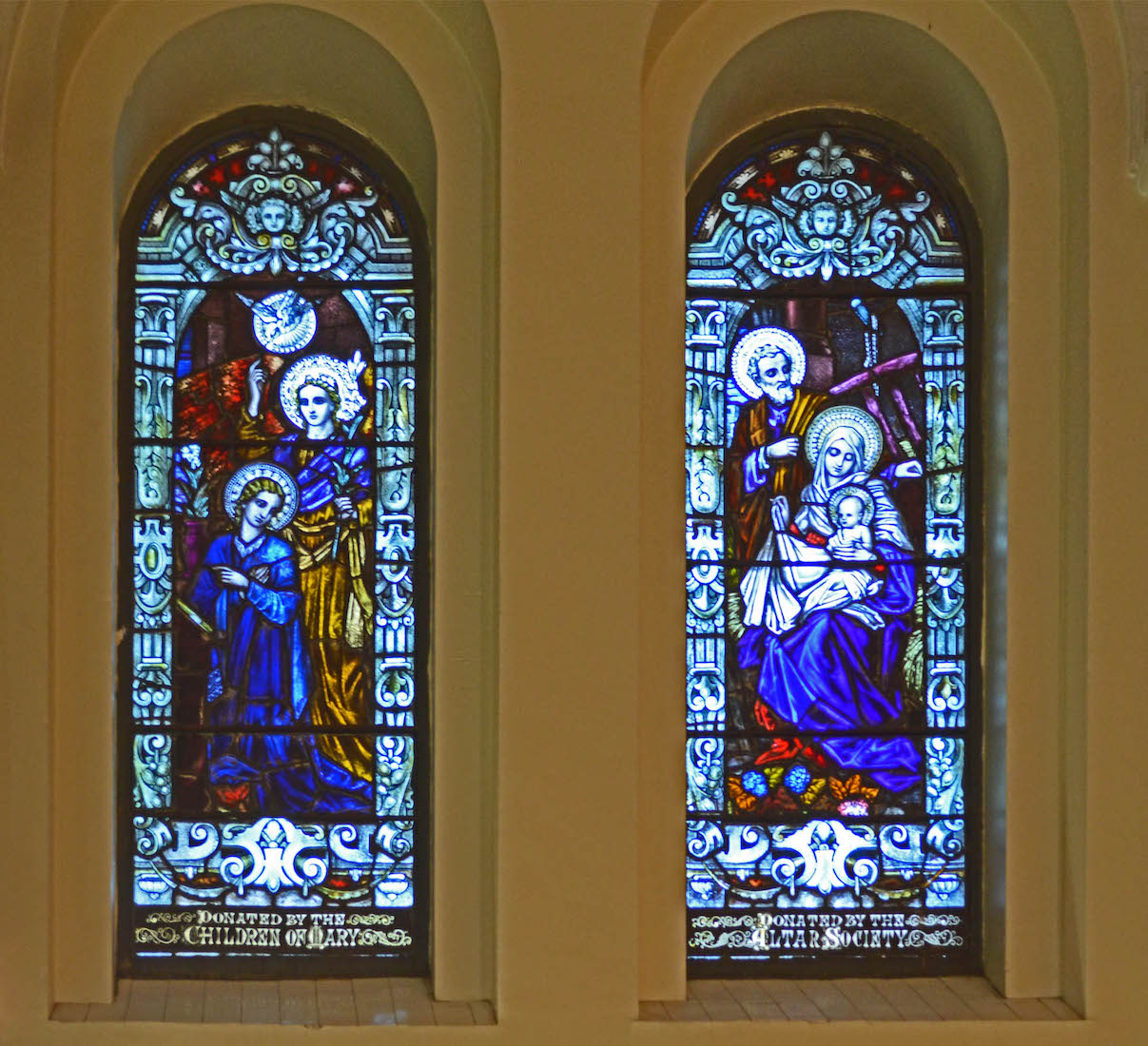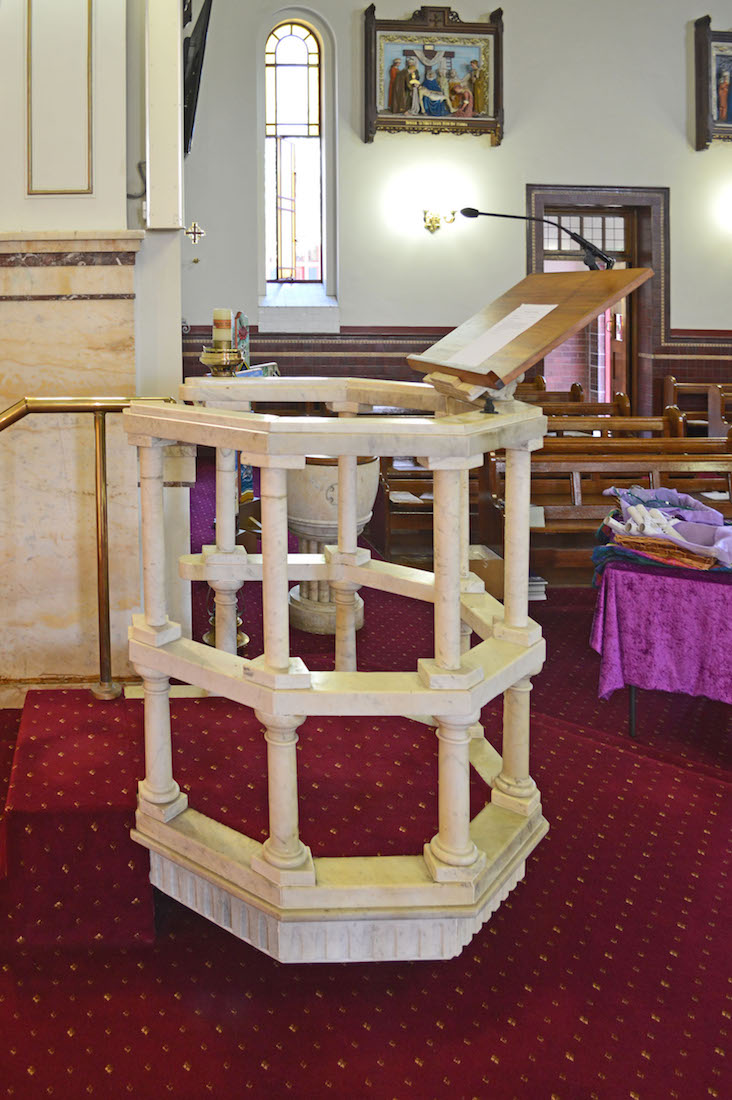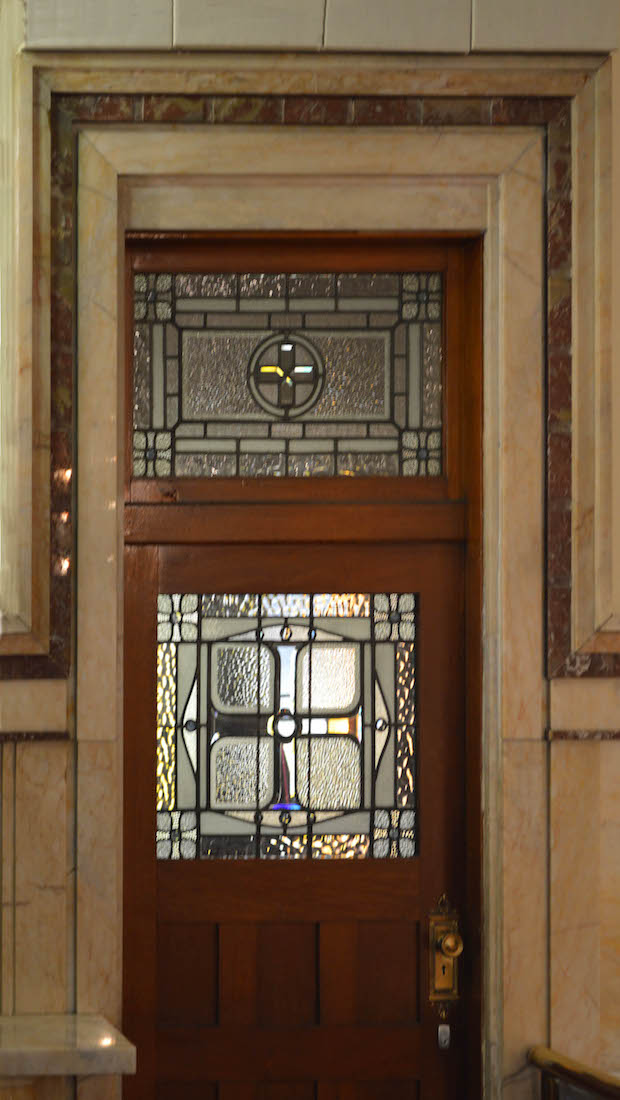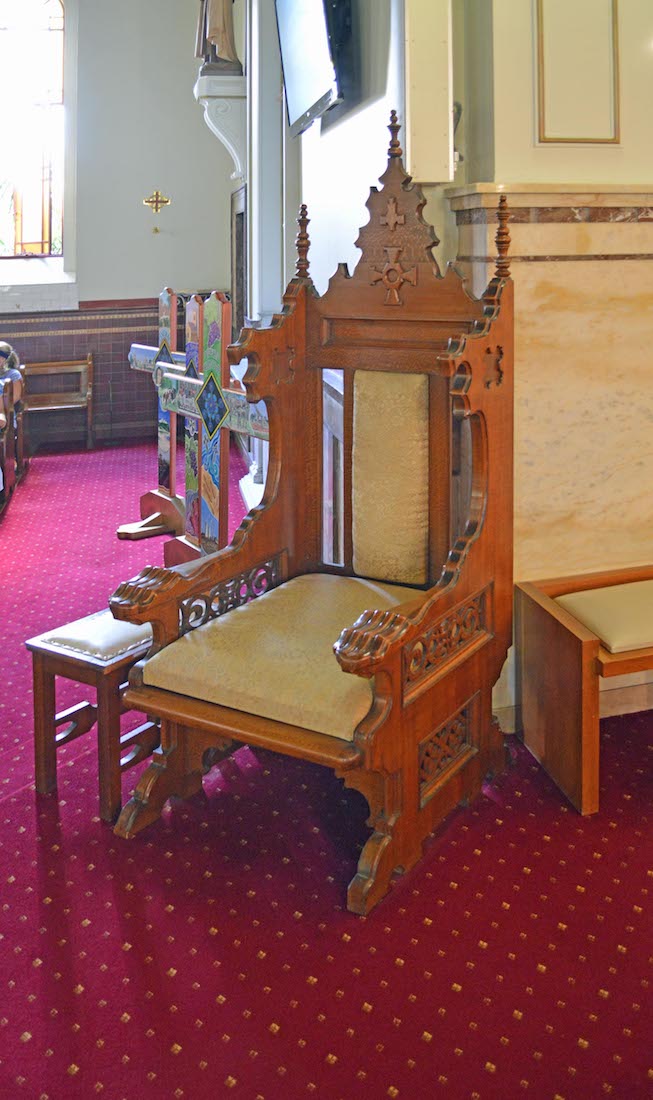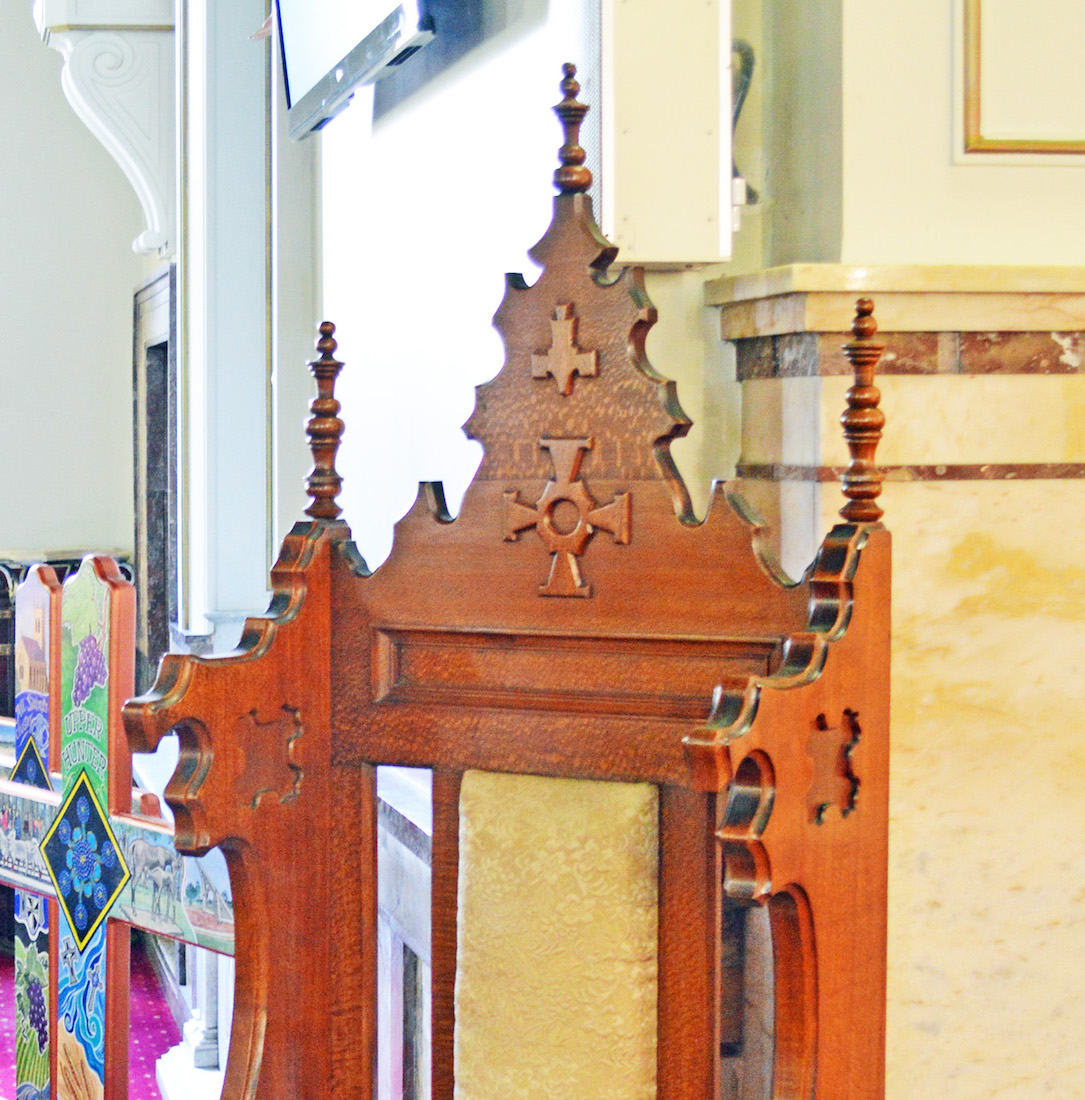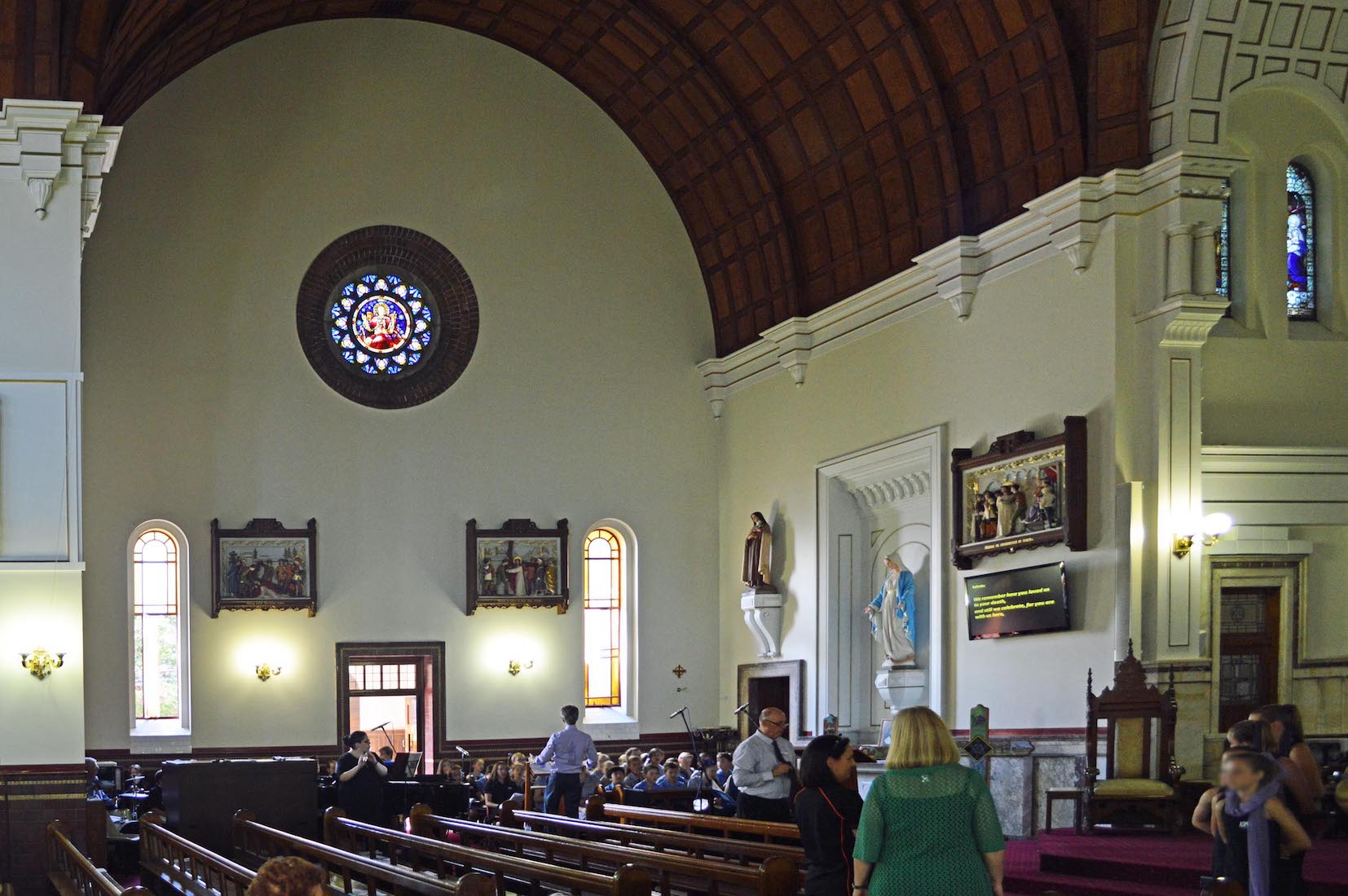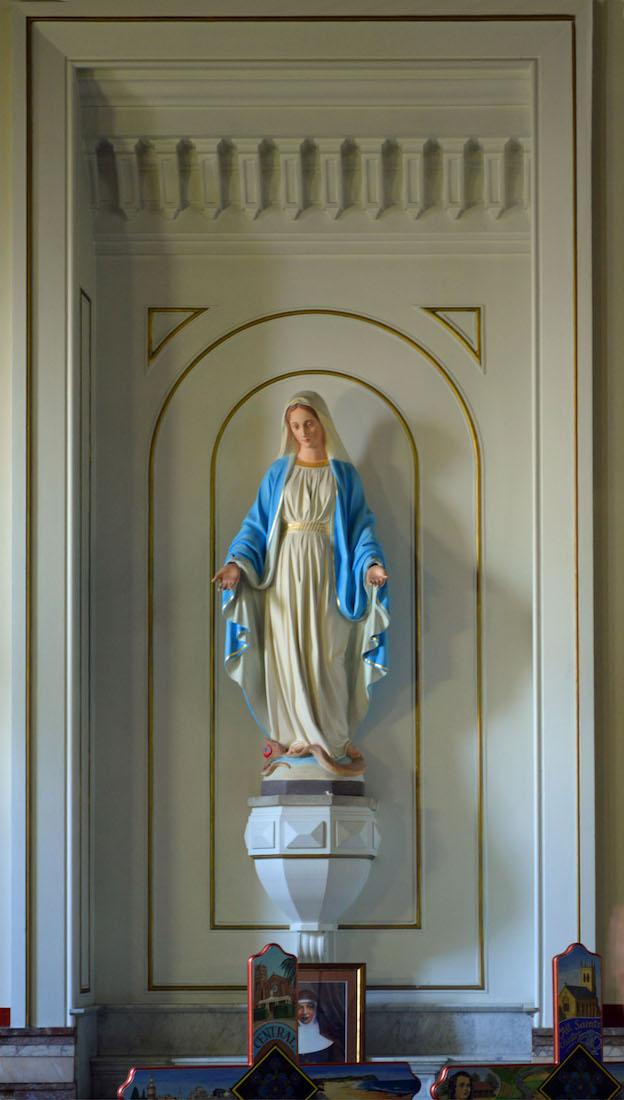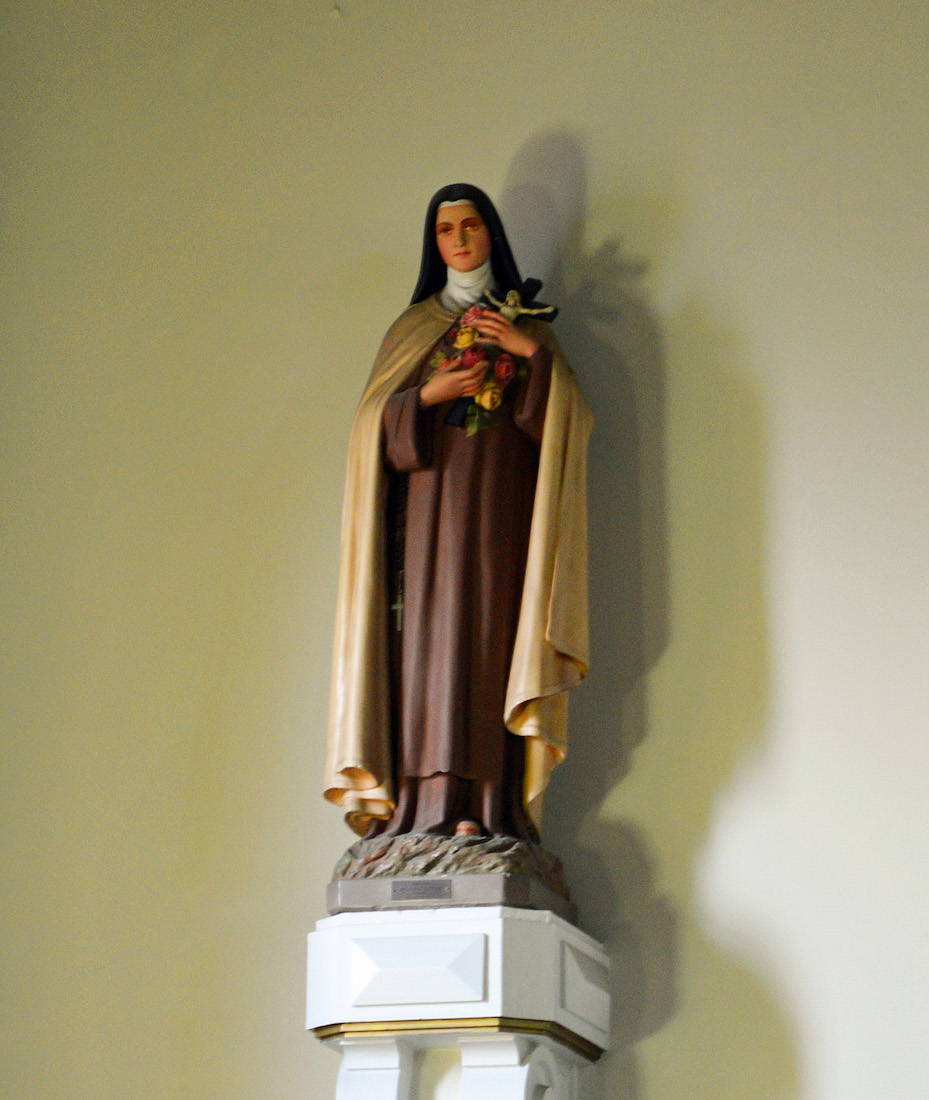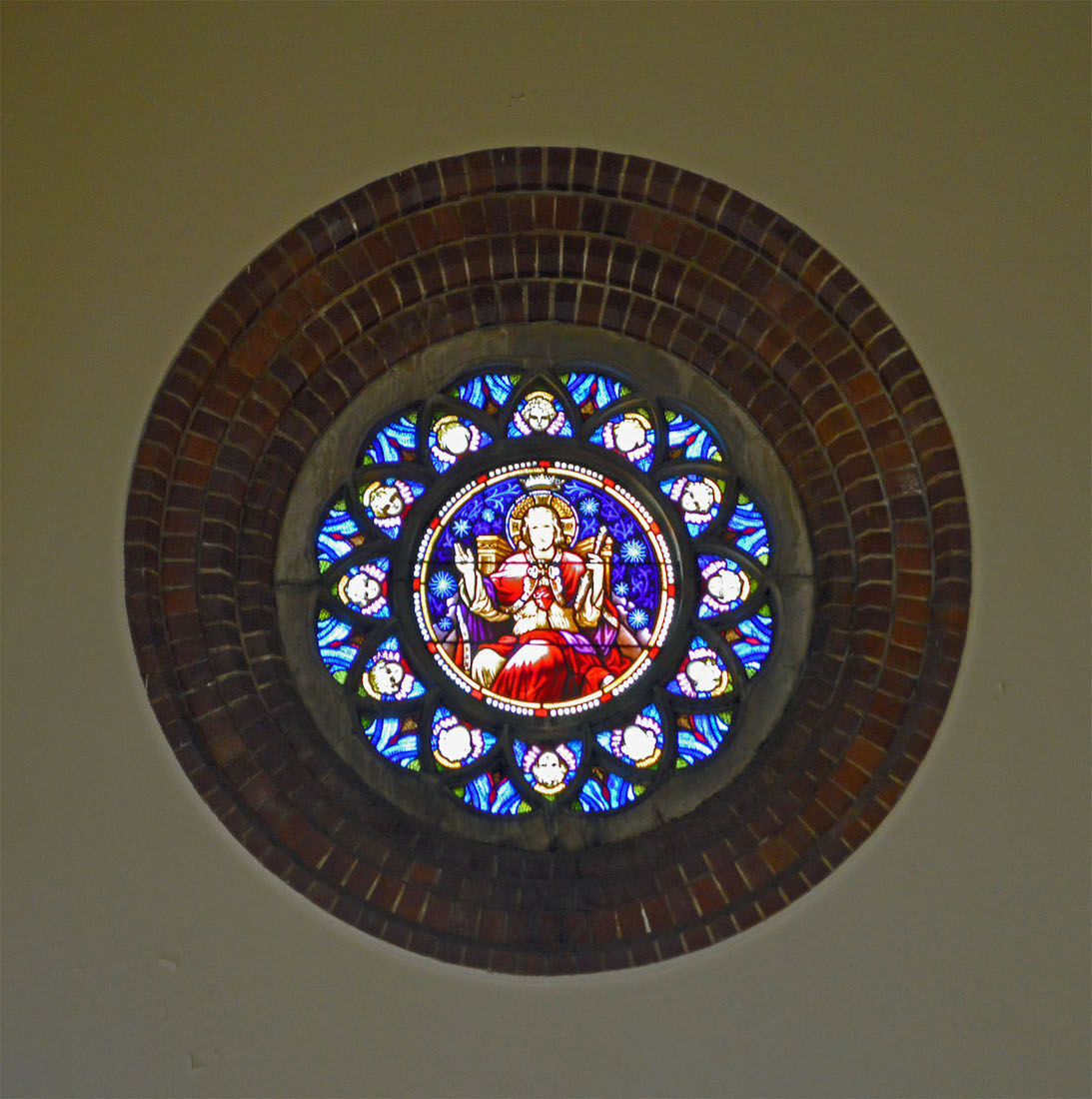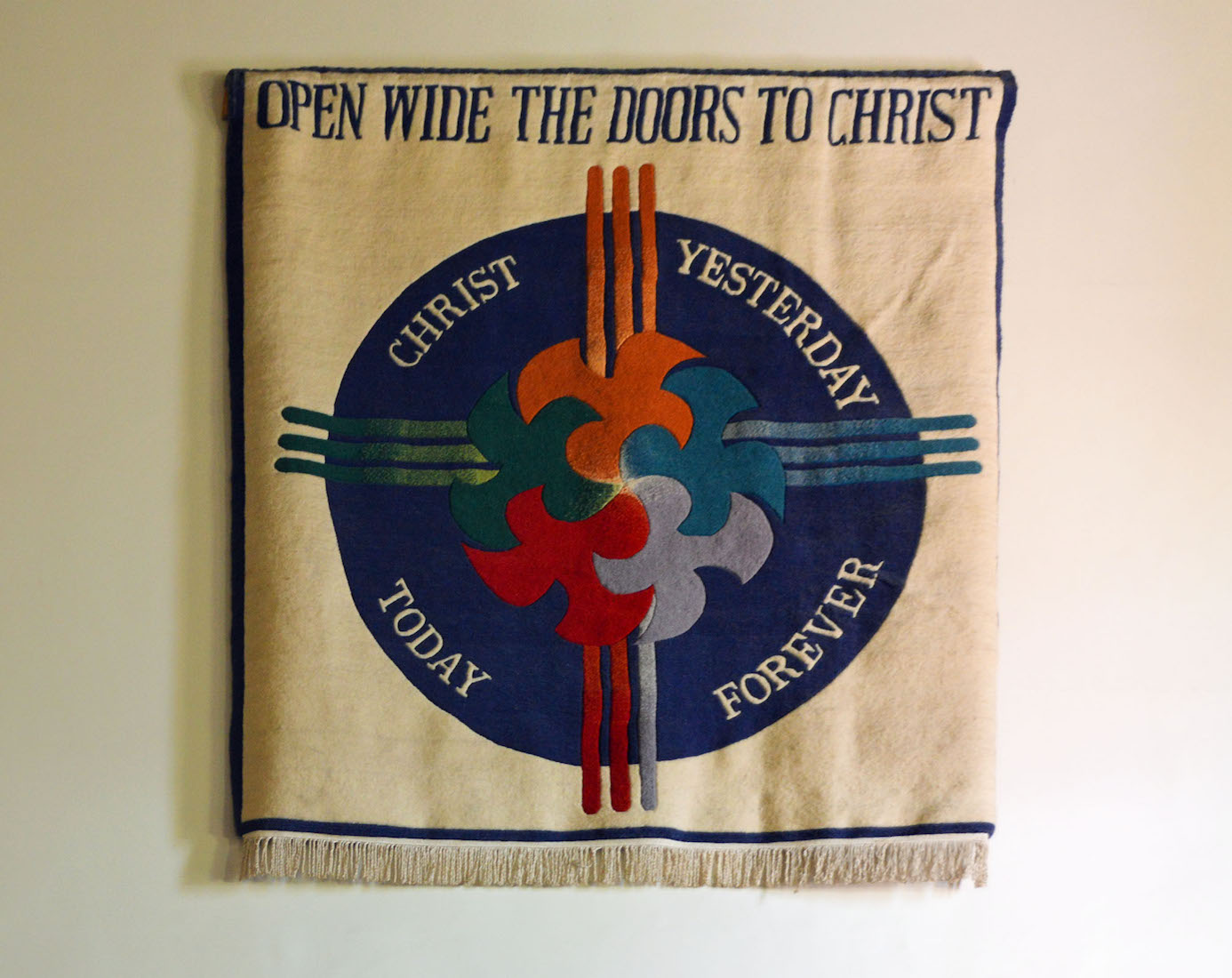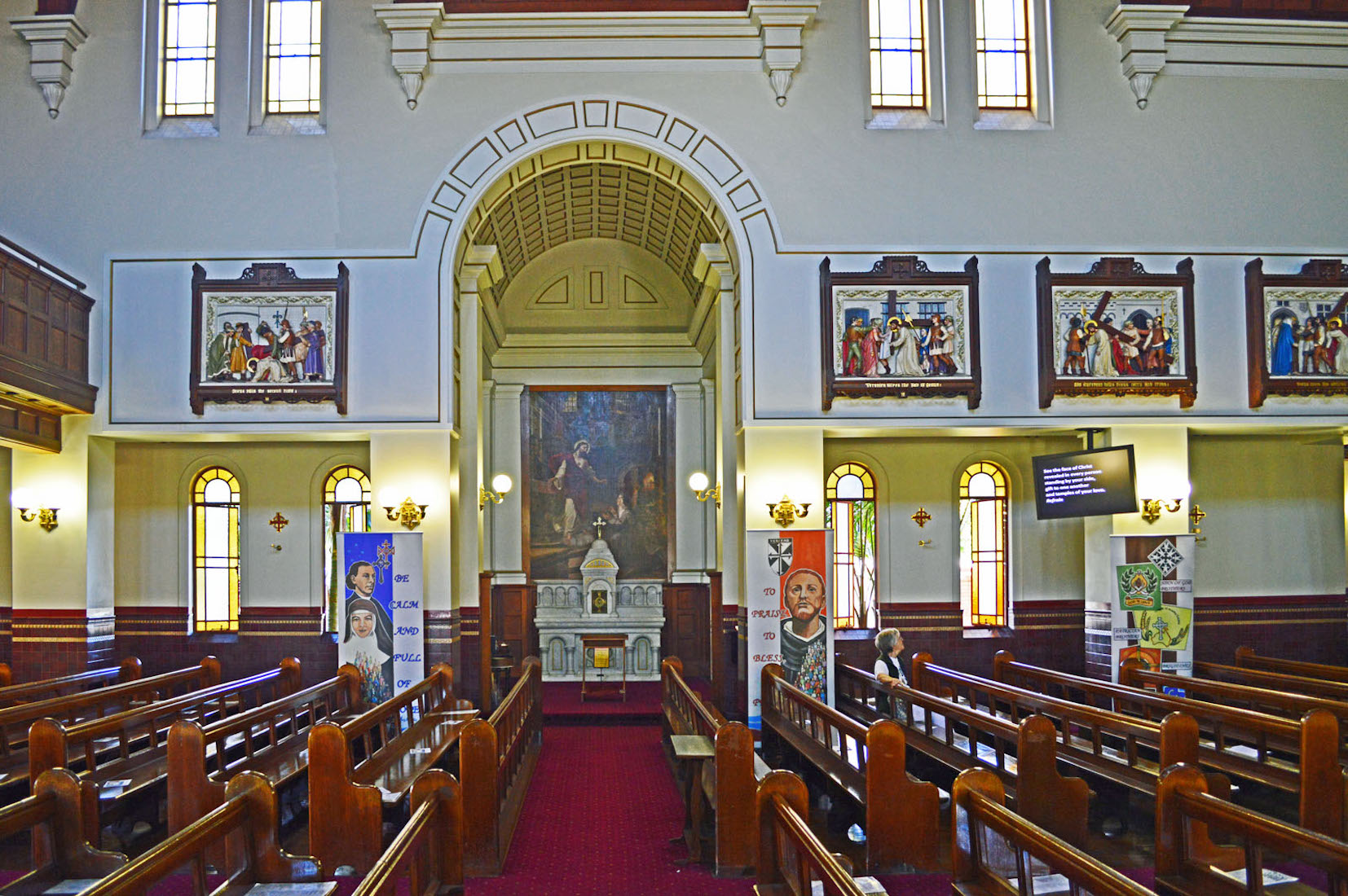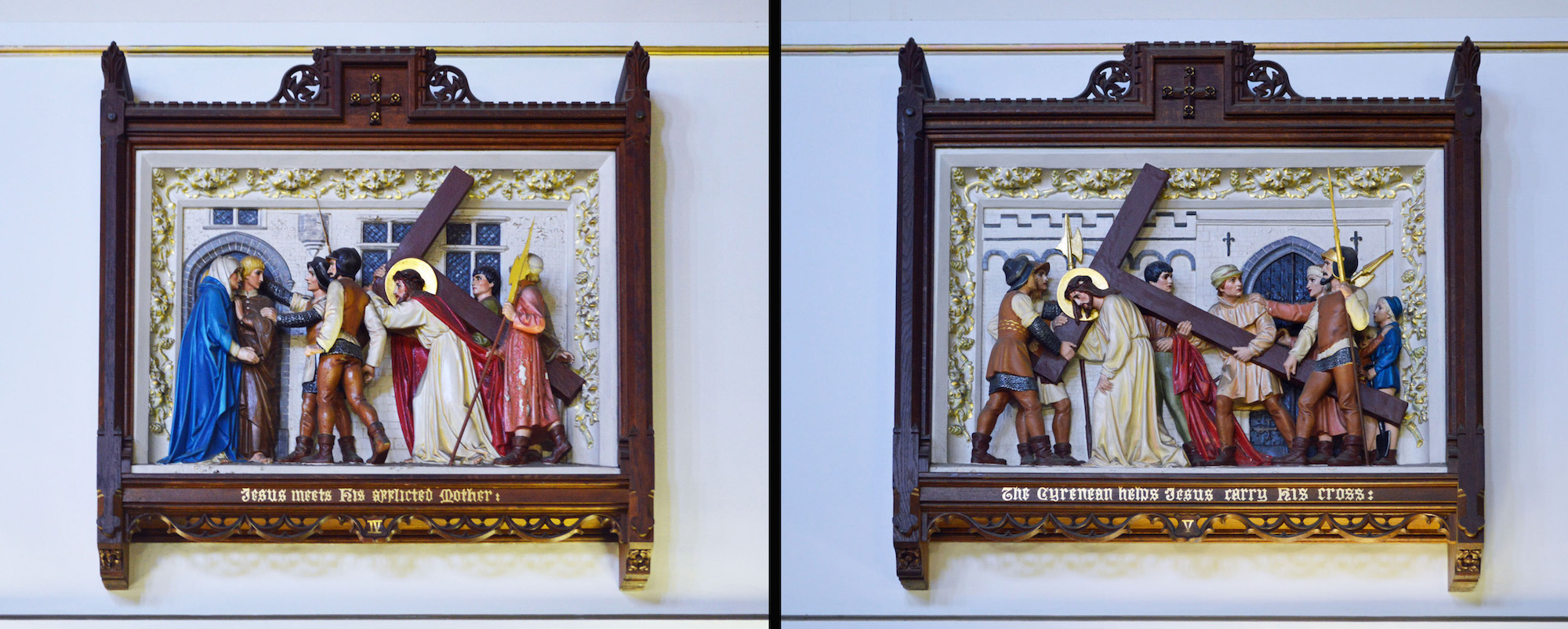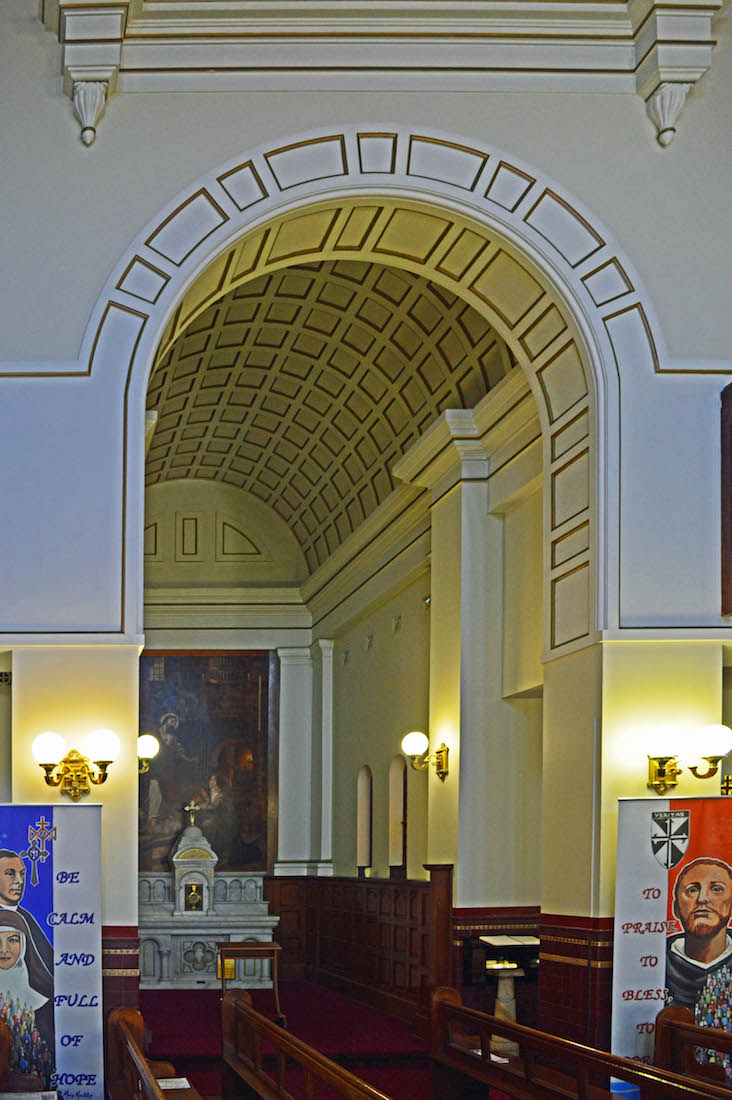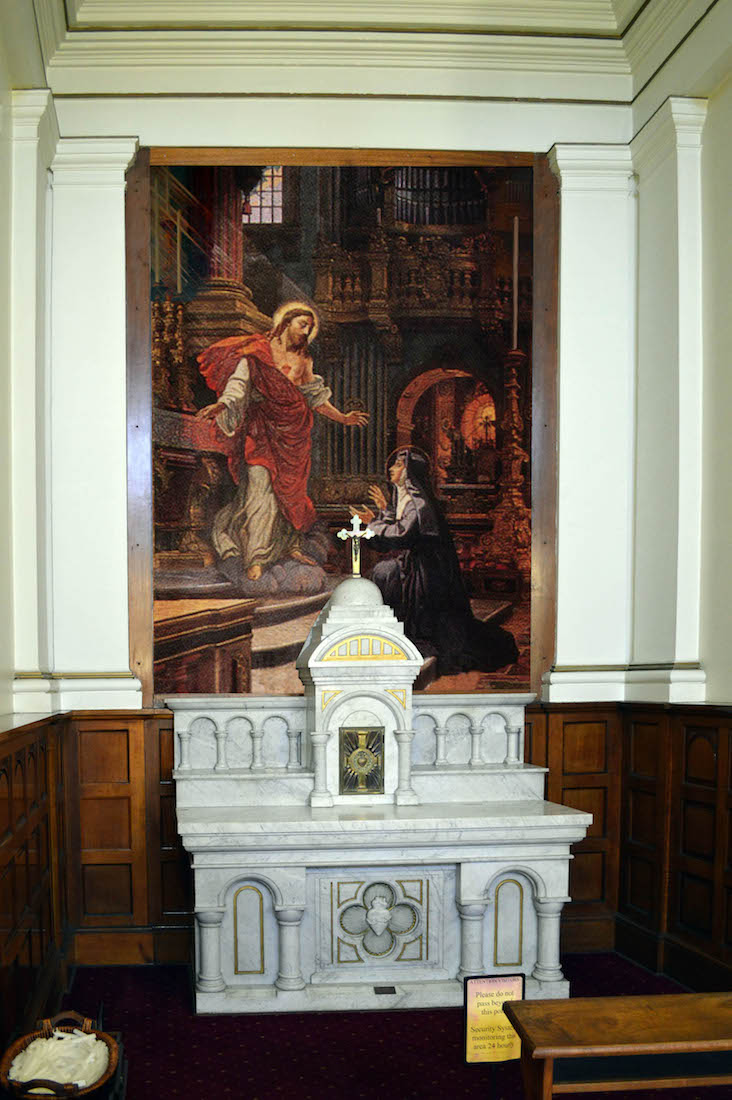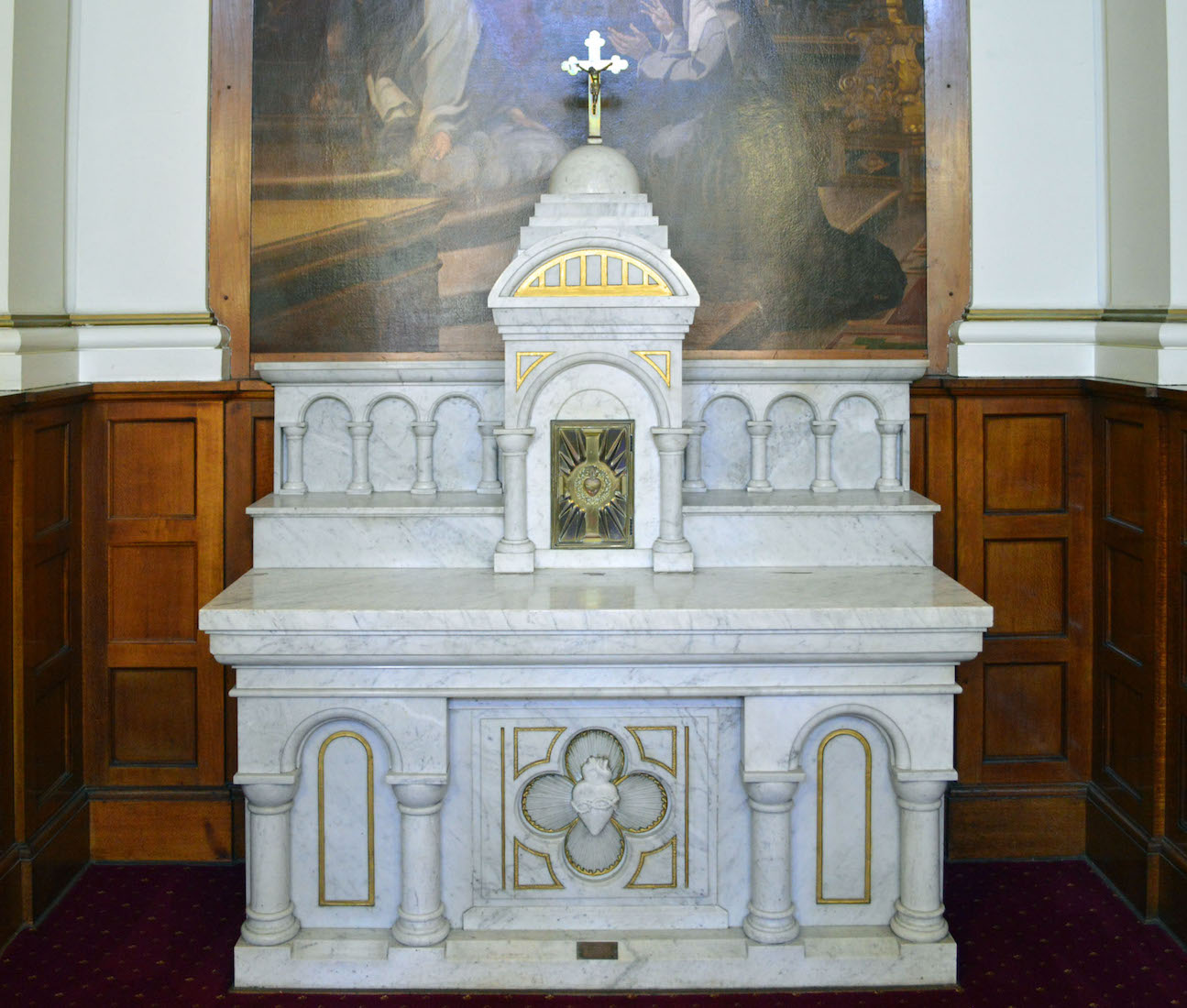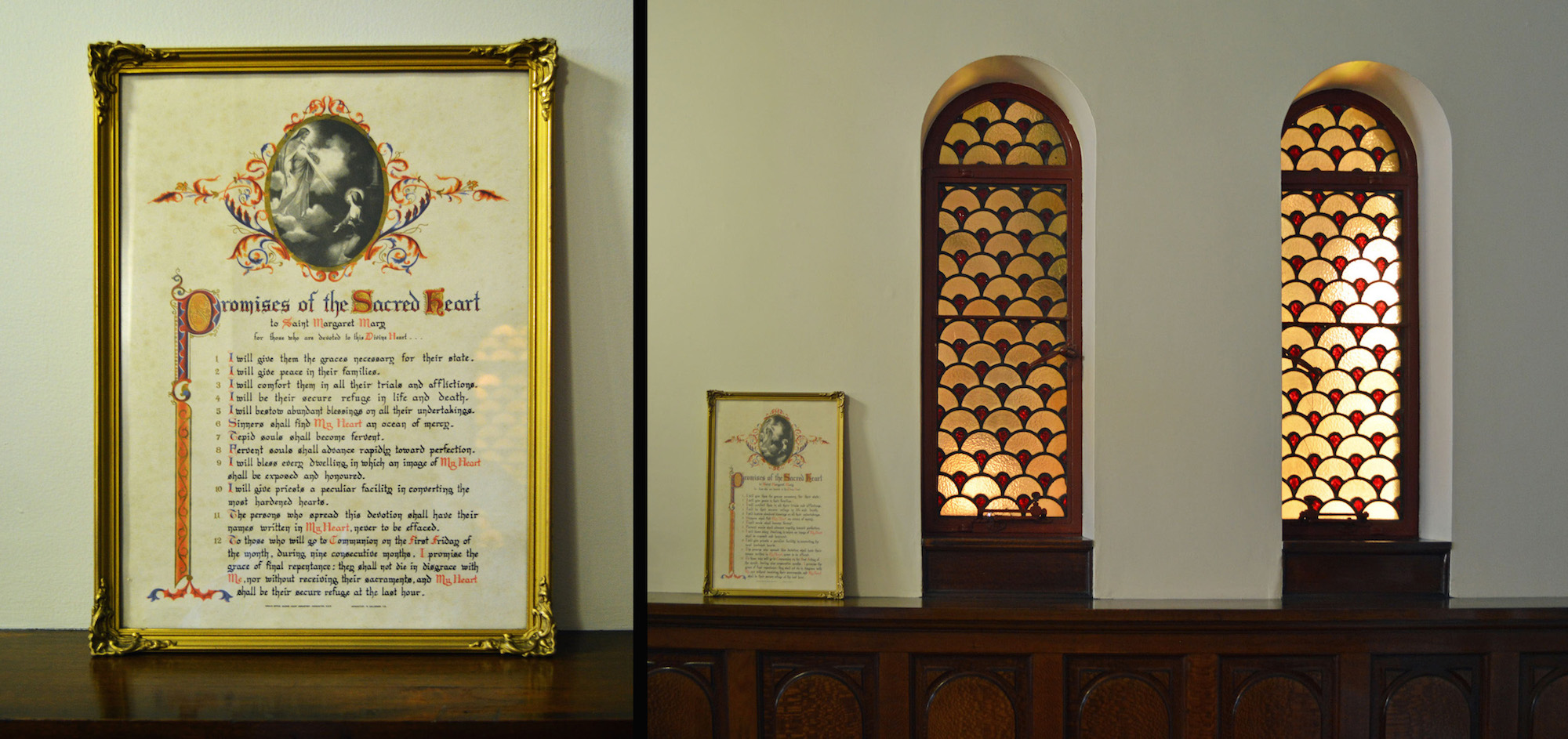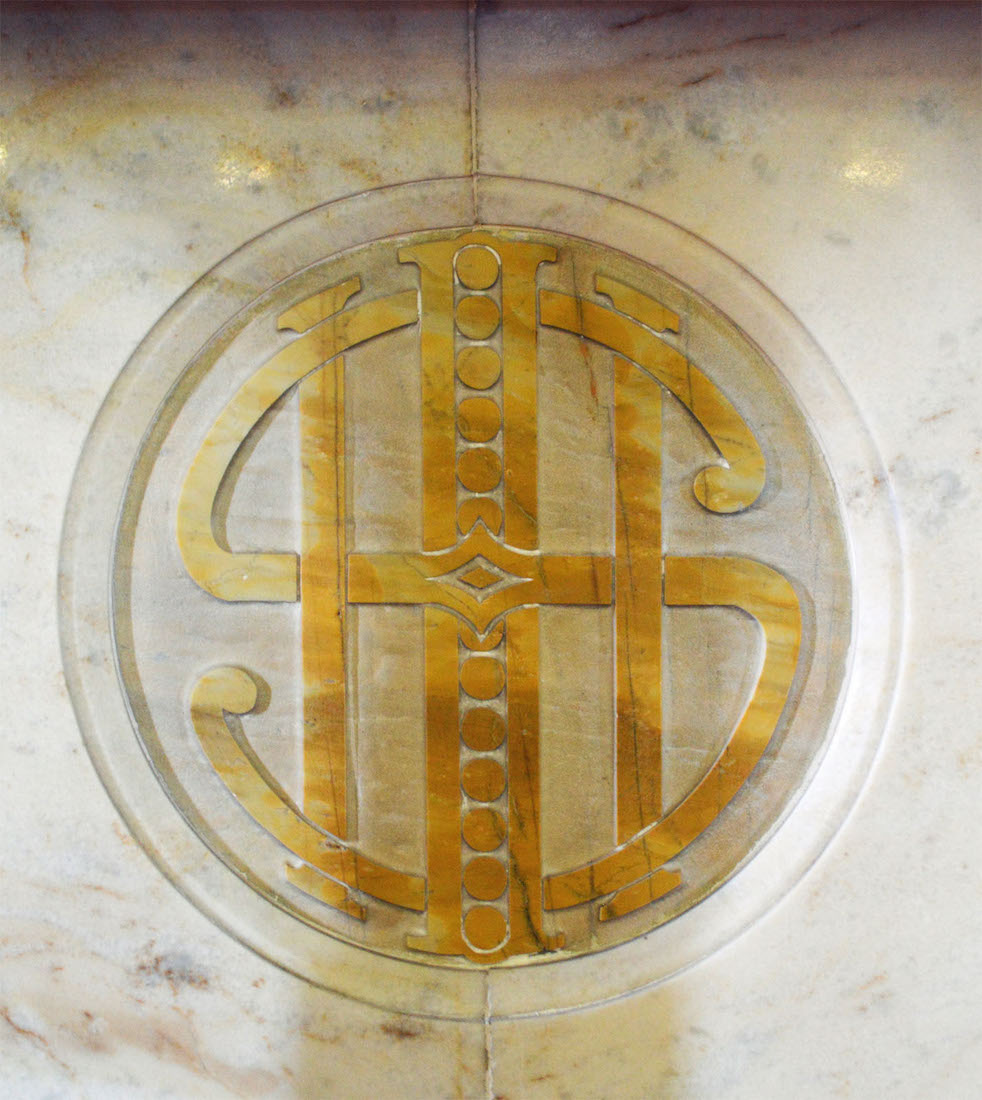
There is a decorative IHS symbol on the front face of the altar. These letters are the first letters of the name ‘Jesus’ in Latinized Greek. PLAN
18C. REREDOS
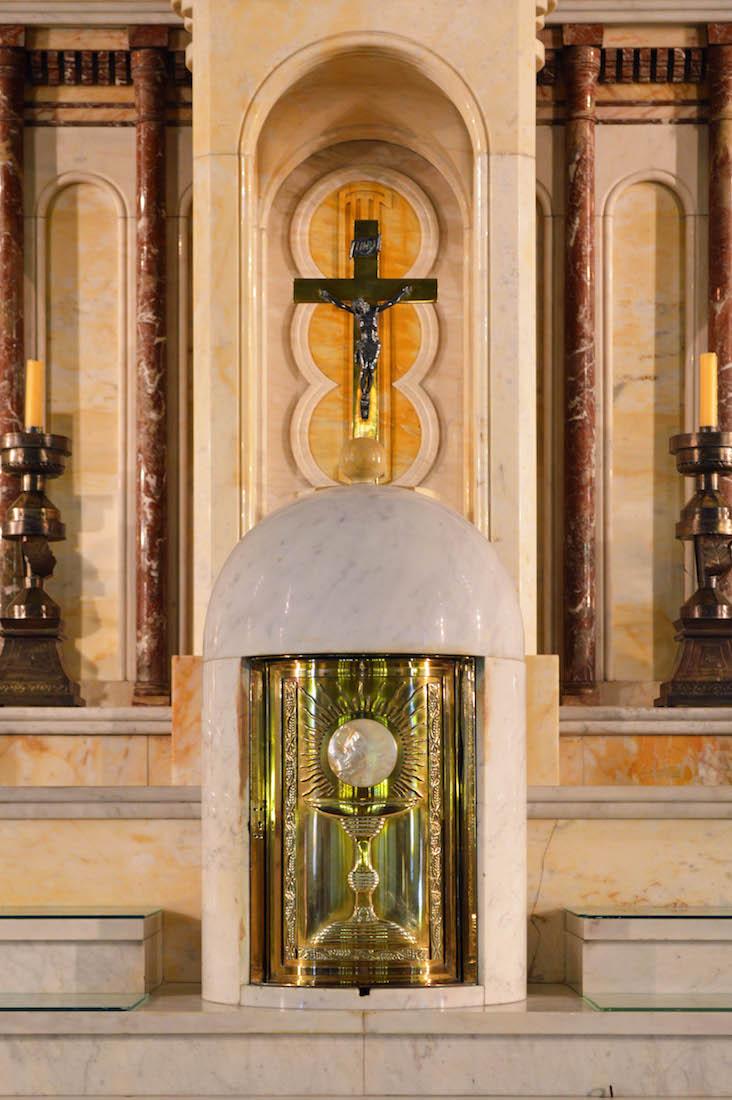
Behind the altar is a marble reredos with six candles, and at the centre a tabernacle with golden doors. The tabernacle holds the Eucharistic Elements. Above the tabernacle is a small crucifix.
18D. REREDOS CRUCIFIX
Surmounting the reredos is a crucifixion scene carved in marble, with Christ on the cross, and disciple John, Mary the mother of Jesus, and Mary Magdalene below.
19A. SANCTUARY SOUTH WINDOWS
These attractive windows are high up on the South side walls of the sanctuary. They show, from left, Christ emerging from the tomb, and Christ appearing to his disciples John and Peter. The inscriptions below tell us that the windows were donated by (from left) the ANC Guild and the NACB Society.
19B. SANCTUARY NORTH WINDOWS
A similar pair are high up on the North side walls of the sanctuary. These show, from left, the Annunciation, and the Nativity. These were donated by (from left) the Children of Mary, and the Altar Society.
20A. PULPIT
On the South side of the sanctuary stands an unusual pulpit of marble columns and struts.
20B. VESTRY DOOR
On either side of the sanctuary, doors with attractive glass panelling lead through to vestries.
20C. CATHEDRA
Near the front of the sanctuary on the North side stands the Bishop’s throne or, as it is in Latin, the cathedra. It is the fact that the Bishop is centred here that makes this church a cathedral.
20D. CATHEDRA DETAIL
The back of the cathedra has a stylized dove and cross decoration.
21A. NORTH TRANSEPT
Our experience of the North transept was enhanced by a children’s choir. We observe the stations of the cross, the round window, and the two statues on the East wall. Our experience of the North transept was enhanced by a children’s choir. We observe the stations of the cross, the round window, and the two statues on the East wall.
21B. OUR LADY
On the East wall of the transept are two statues. The right hand statue is St Mary, the Mother of Jesus. Mary is often depicted with her foot crushing a snake. This is an allusion to the prophecy in Genesis 3:15: ‘He will crush your head ... ’ fulfilled with Christ overcoming Satan on the Cross. Mary is shown with her hands out in welcome and invitation.
21C. ST THÉRÈSE OF LISIEUX
The statue at left depicts St Thérèse of Lisieux. She is popularly known as ‘The Little Flower of Jesus’ or simply, ‘The Little Flower’. Thérèse lived a hidden life and ‘wanted to be unknown’, yet became popular after her death through her spiritual autobiography.
22A. NORTH TRANSEPT WINDOW
The circular window shows Christ reigning in glory, surrounded by a ring of cherubim. The ceilings to both the nave and transepts are barrel vaulted, or semi-cylindrical, and are of panelled oak.
22B. BANNER
Then there is another banner, out of sight on the West wall. This proclaims ‘Christ Yesterday, Today and Forever’ under the writing ‘Open wide the doors to Christ’ – a good banner!
23A. NAVE NORTH WALL
Leaving the transept, we move back up the nave with our attention on the North wall. There is a side chapel to investigate here, but first we revisit the Stations of the Cross.
23B. NAVE NORTH STATIONS
Station IV at left shows Jesus meeting his afflicted Mother, and Station V shows the Cyrenean helping Jesus carry his Cross.
24B. CHAPEL WALL
On repeated occasions, Jesus appeared to St Margaret Mary Alacoque and explained the devotion to his Sacred Heart as he wanted people to practice it. The painting is ‘Altar of the Sacred Heart’ by Carlo Muccioli, painted in 1923. Muccioli lived 1857 – 1933.
24C. CHAPEL ALTAR
The chapel contains a simple marble altar.
25. CHAPEL WEST WALL
The chapel contains some attractive patterned windows. There is also a framed sheet of the Promises of the Sacred Heart given to Saint Margaret Mary. These begin: 1. I will give them the grace necessary for their state. 2. I will give peace to their families. 3. I will comfort them in all their trials and afflictions. 4. I will be their secure refuge in life and death. 5. I will bestow abundant blessings on all their undertakings. 6. Sinners shall find my heart an ocean of mercy. 7. Tepid souls shall become fervent. 8. Fervent souls shall advance rapidly toward perfection. ...


